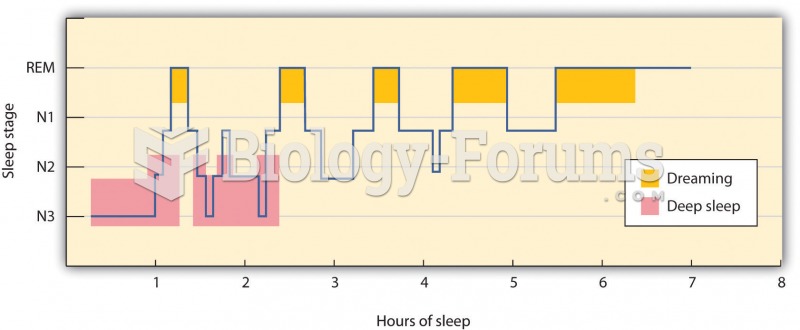|
|
|
Blood in the urine can be a sign of a kidney stone, glomerulonephritis, or other kidney problems.
Certain chemicals, after ingestion, can be converted by the body into cyanide. Most of these chemicals have been removed from the market, but some old nail polish remover, solvents, and plastics manufacturing solutions can contain these substances.
In inpatient settings, adverse drug events account for an estimated one in three of all hospital adverse events. They affect approximately 2 million hospital stays every year, and prolong hospital stays by between one and five days.
The shortest mature adult human of whom there is independent evidence was Gul Mohammed in India. In 1990, he was measured in New Delhi and stood 22.5 inches tall.
Egg cells are about the size of a grain of sand. They are formed inside of a female's ovaries before she is even born.
 Surface magnetic field of SU Aur (a young star of T Tauri type), reconstructed by means of Zeeman-Do
Surface magnetic field of SU Aur (a young star of T Tauri type), reconstructed by means of Zeeman-Do
 Joseph Moore and His Family (1839), by Erastus Salisbury Field, reflects the emerging middle-class f
Joseph Moore and His Family (1839), by Erastus Salisbury Field, reflects the emerging middle-class f





